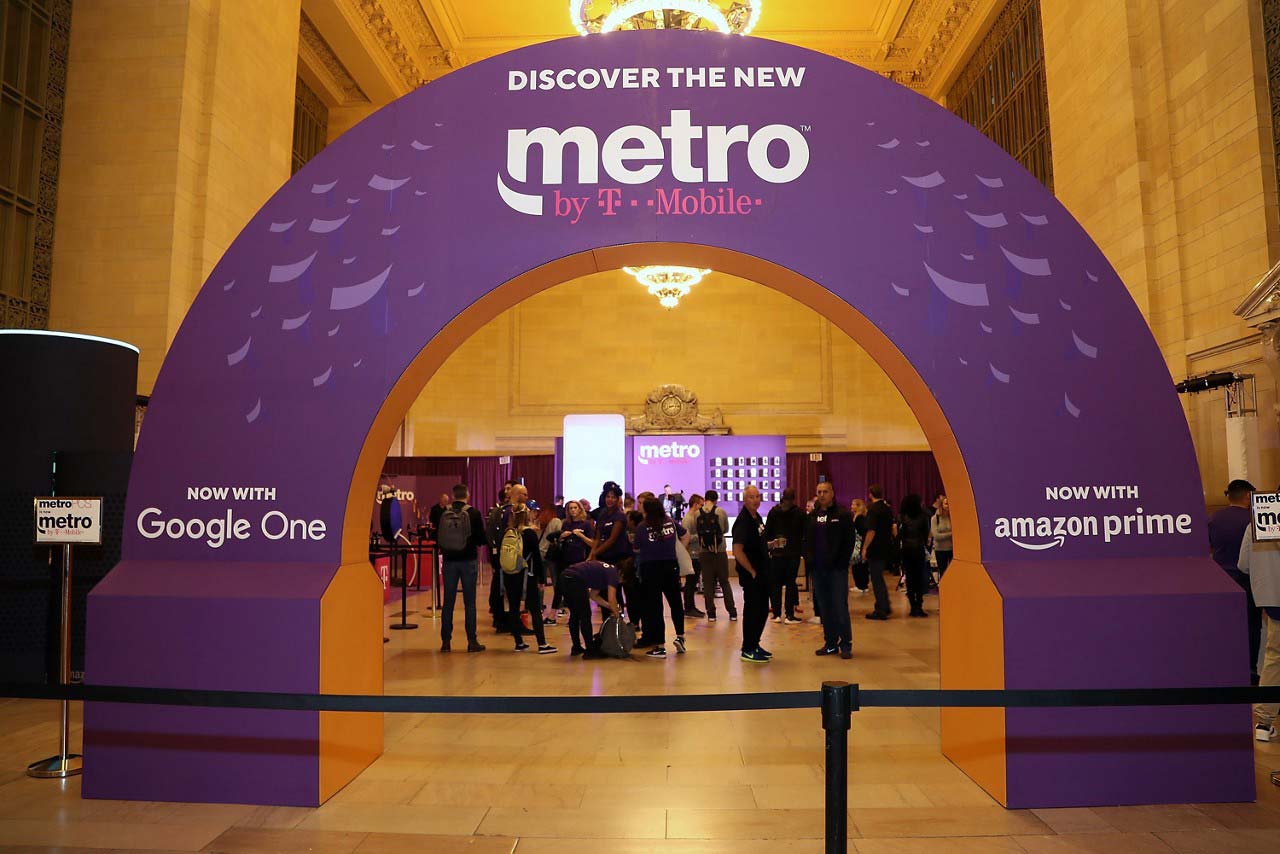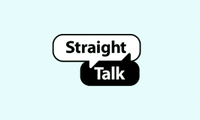Metro by T-Mobile (MetroPCS) Is the Fastest Cheap Carrier
Our network speed testing found that Metro by T-Mobile finished first among discount carriers, thanks to the strength of T-Mobile’s wireless network.
Discount carrier MetroPCS recently changed its name to Metro by T-Mobile, a move that, among other things, emphasizes its close ties to parent company T-Mobile. It's a pretty shrewd switch by Metro — after all, T-Mobile's network is one of the best things that Metro has going for it.

While T-Mobile didn't finish on top in our recent round of network speed-testing, it still performed well-enough to earn a top three finish. And because Metro uses T-Mobile's network for its own wireless service, its customers reap the benefits.
Discount Carrier Performance, 2018 LTE Testing
| Carrier | Average Download Speed (Mbps) | Average Upload Speed (Mbps) | Average App Download Time (Mins:Secs) |
| Metro By T-Mobile | 32.8 | 13 | 1:22 |
| Straight Talk | 31.1 | 15.6 | 1:06 |
| Boost | 29.4 | 3.7 | 1:29 |
| Cricket | 6.5 | 5.8 | 1:00 |
Metro recorded an average download speed of 32.8 Mbps in tests spread across eight U.S. cities — which placed it fourth in our tests of eight national carriers. Its average upload speed of 13 Mbps was also fourth best. And that helped Metro retain its title as the discount carrier with best network performance in our testing.
A common perception among wireless customers is that one of the trade-offs you make when opting for prepaid phone service is diminished network performance. And while it's true that parent carriers reserve the right to slow down speeds of mobile virtual network operators (MVNOs) like Metro should the network become congested, we've rarely seen much of a disparity over three years of networking testing.
MORE: Best and Worst Phone Carriers
That continued to be the case in this round of testing, where Metro's 32.8 Mbps average wasn't that far off from the 36.3 Mbps download speed that T-Mobile recorded. There were some exceptions — Metro was noticeably off the pace set by T-Mobile when we tested in Houston this year, and T-Mobile's speeds were also faster in Chicago, but that could just reflect network traffic conditions on the days we tested. More often than not, Metro's performance was every bit as strong as T-Mobile's — and T-Mobile's performance is pretty strong across the board.
Sign up to get the BEST of Tom's Guide direct to your inbox.
Get instant access to breaking news, the hottest reviews, great deals and helpful tips.
Metro vs. Straight Talk
Metro did face stiffer competition this year in the form of Straight Talk. That MVNO posted an average download speed of 31.1 Mbps, finishing just behind Sprint. And its average upload speed of 15.6 Mbps was actually better than Metro's.
Straight Talk gives you a choice of which network SIM card to use. You can pick any of the Big Four carriers, and we tested Straight Talk using the Verizon SIM the carrier provided us with. That turned out to be a good choice, as Verizon had the best performance of any carrier in our testing, and its rising tide lifted Straight Talk's boat.
Still, Verizon's impact on Straight Talk had its limits. The MVNO's average download speeds were usually off the pace set by Verizon. In Los Angeles, for example, Verizon led the pack with a 56.7 Mbps average. Straight Talk posted average speeds of 31 Mbps, behind Metro's average speed. In other cities, the patten repeated itself: Verizon set the pace, and Straight Talk lagged behind. Because Metro more consistently matched the performance of its parent network, we think it's the better choice.
Other discount carriers
Boost, an MVNO owned by Sprint, also closely matched the download and upload speeds of its parent network — and that's not necessarily a good thing. While Sprint performed better on our testing this year, even posting the best performance when we tested in Philadelphia, it's still the slowest of the Big Four carriers overall. And that had an impact on Boost's performance as well, with its 29.4 Mbps average download speed besting only Cricket. (And there's a reason for that, as we'll discuss in a minute.)
In addition to running the Speedtest.net app to record download and upload speeds at multiple locations around a city, we also download an app — the 40MB Discord app in this instance — and time how long it takes. Here's where Boost really stumbled. Its average download time of 1 minute, 29 seconds was the worst performance of any wireless carrier we tested and much slower than the 57-second average Sprint tallied on the same network.
As for Cricket, it uses the cellular network of parent company AT&T. That should be good news, since AT&T was runner-up in our tests. But Cricket puts an 8Mbps cap on its download speeds for all but one of its cellular plans. (Only Cricket's $60-a-month Unlimited Extra plan has no speed cap, a change Cricket made after we completed our testing.) Cricket's performance reflected that, as the carrier recorded an average download speed of 6.5 Mbps. Its one saving grace was averaging a flat minute in our app download test.
Bottom line
Consumers have a lot of options when it comes to looking for low-cost cellular plans outside of the Big Four carriers. And several of those options include MVNOs that turn to T-Mobile's network for their service. T-Mobile hopes those bargain-hunter customers will stick with its Metro subsidiary, and it recently doubled the amount of LTE data in Metro's $40 monthly plan to 10GB. Our network test results indicate that if people take Metro and T-Mobile up on that offer, they can expect pretty fast service in return.
Philip Michaels is a Managing Editor at Tom's Guide. He's been covering personal technology since 1999 and was in the building when Steve Jobs showed off the iPhone for the first time. He's been evaluating smartphones since that first iPhone debuted in 2007, and he's been following phone carriers and smartphone plans since 2015. He has strong opinions about Apple, the Oakland Athletics, old movies and proper butchery techniques. Follow him at @PhilipMichaels.
-
glennquagmire911 When it comes to cheap carriers, AT&T has its own "cheap line" in their "Pay as you go" product. I found I get all the benefits of their network at half the price of their subscriber line.Reply
TG should include that in their tests. I used to be a Metro customer but in Dallas, TX, AT&T rules when it comes to speed and having a good signal or a signal at all. I pay $40 a month and get 10gbs of data with no throttling that I am aware of. So, I have my cake and eat it too with no deposit required, but I did have to buy my handset. I bought an Essential PH-1 anyway so I wouldn't be tied to any carrier nor suffer performance issues due to bloatware. -
regalimmigrant Wait, where does everyone go to get this 33Mbps? I've never had more than 7-8 Mbps on MetroPCS and often it's below 1 Mbps - occasionally it stops entirely. I'm in San Jose, CA, not the end of the cellular world. It's never been better in the several years I've used MetroPCS and over different phones and they've never been able to improve it from their end either. In fact despite promising they've reset things, there's never been a difference. I am very envious!!!Reply



